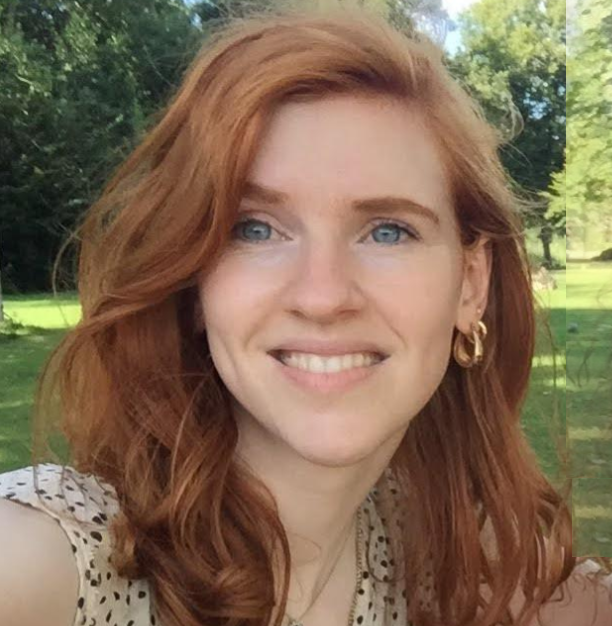Lecturer, Department of Computer Science, University of Aberdeen
I am a Lecturer (assistant professor) in the Department of Computer Science at the University of Aberdeen. My work explores speaker adaptation in dialogue, specifically how speakers align to one another as they (try to) find common ground. I have been particularly interested in how this applies to second language learning, although my interests extend to dialogues which foster learning and collaboration in many contexts. My research interests include Natural Language Processing, Computational Linguistics, Cognitive Science and Education.
Postdoc, ILLC, University of Amsterdam (UVA)
I did my postdoc at the Institute for Logic, Language and Computation (ILLC), UvA. I was part of the Dialogue Modelling Group, working on the DREAM (Distributed dynamic Representations for diAlogue Management) project under Raquel Fernandez. During my time at UvA, I had the chance to collaborate with some amazing researchers, and participate in many interesting projects.
PhD, University of Edinburgh
I completed my PhD at the University of Edinburgh, Informatics in 2019. My thesis explores adaptive dialogue, specifically linguistic complexity for second language education applications. My supervisors were Dragan Gasevic, Adam Lopez and Chris Lucas. I was privileged to have had the supervision and mentorship of Jon Oberlander for a significant part of my earlier PhD work.Modelling Speaker Adaptation in Second Language Learner Dialogue
Understanding how tutors and students adapt to one another within Second Language (L2) learning is an important step in the development of better automated tutoring tools for L2 conversational practice. Such an understanding can not only inform conversational agent design, but can be useful for other pedagogic applications such as formative assessment, self reflection on tutoring practice, learning analytics, and conversation modelling for personalisation and adaptation.
Dialogue is a challenging domain for natural language processing, understanding, and generation. It is necessary to understand how participants adapt to their interlocutor, changing what they express and how they express it as they update their beliefs about the knowledge, preferences, and goals of the other person. While this adaptation is natural to humans, it is an open problem for dialogue systems, where managing coherence across utterances is an active area of research, even without adaptation.
'' From a Vygotskian perspective, the teacher's role is mediating the child's learning activity as they share knowledge through social interaction'' - Vygotsky in the Classroom
We argue that the lexical complexity, alignment and dialogue style adaptation we model in L2 human dialogue are signs of tutoring strategies in action, and hypothesise that creating agents which adapt to these aspects of dialogue will result in better environments for learning. We find that complexity, alignmentand dialogue act usage are used differently by speakers in L2 dialogue than within other types of fluent conversational dialogue, and changes depending on the learner proficiency.
We also find different types of learner behaviours within automated L2 tutoring dialogues to those present in human ones, using alignment to measure this. As a result of our analysis of human-agent dialogue, we hypothesise that with a more adaptive agent, student alignment may become more similar to that found with a human tutor, increasing their engagement with the agent, and therefore their learning potential.
My thesis contributes new findings on interlocutor adaptation within second language practice dialogue, with an emphasis on how these can be used to improve tutoring dialogue agents.
Background
My background is in Computer Science, and I have previously worked on summarization during my Master Thesis in the University of Cambridge under Simone Teufel. This was a year-long course where I specialised in Natural Language Processing and Machine Learning. My MPhil thesis was titled "Coreference Processing in Narrative Text".
Whilst an Undergraduate in the University of Aberdeen, I worked for a research-oriented start-up called Technabling where I worked on pattern recognition and clustering of spatio-temporal data.
I spent time between completing my masters and starting a PhD in Edinburgh working for a start-up based in Berlin called Ally as a back-end programmer and datascientist. The version of the app upon which I worked reached Apple's top 20 watched apps in the German App Store in 2015.
During the third year of my PhD, I took a 4 month internship with a dialogue start up in London called Olly. My role was as research scientist, and I created personalised language models for use in the ASR pipeline for their smart home assistant with personality adaptation.
During my time as a PhD student I also had the opportunity to tutor masters student research projects (IRR and IPP), and in 2018 helped supervise the projects of 5 masters students under Maria Wolters in informatics and design informatics courses.


